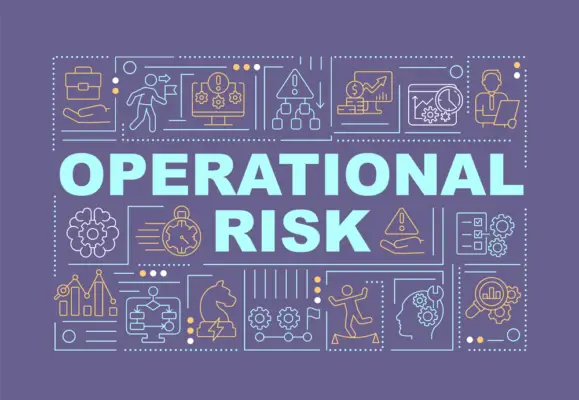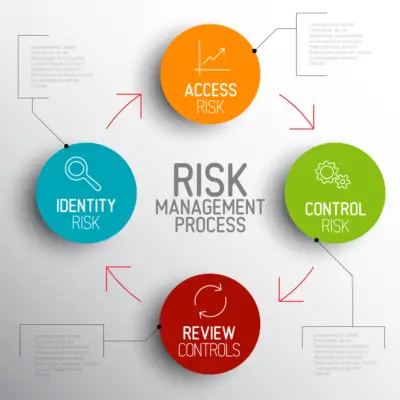Control self-assessment (RCSA) is a process that helps organizations identify and analyze the risks they face. Risk management is an essential part of any business. It is a process that helps organizations identify and assess the risks they face, including those resulting from failed internal processes, to develop strategies to mitigate them.
The Pandemic underscored the importance of effective and risk management practices as well as effective controls. Risk Control Self Assessment or risk control self-assessment is a common tool by banks and other financial institutions and is commonly utilized by companies as part of risk management programs used by operational risk managers.
RCSA is an important component of any organization’s risk management strategy, as it provides insight into how risks are managed and what processes can be improved. Let’s explore more about this vital tool.
What Is RCSA Risk Management?
RCSA(Risk control self-assessments) an operational risk management tool that involves identifying potential risks to an organization’s risk profile, assessing them, developing strategies to reduce their impact, and monitoring the implementation of those strategies.
This process starts with an initial assessment control identification of the existing risk landscape, which involves identifying key areas where identified risks can arise. This information is then used to develop a comprehensive framework for managing these risk and control self such risks in the future.
The framework comprises five components: identification and assessment potential risk; the risk and control design; control implementation; control monitoring; and corrective action planning. Each component is important in ensuring that the organization’s efforts are effective and efficient.

The identification and assessment component helps organizations identify areas where their current controls may be inadequate or nonexistent, while the design component focuses on developing appropriate controls that address those identified vulnerabilities.
The implementation component ensures that those controls are implemented properly, while the continuous monitoring of component monitors their performance over time. Finally, corrective action planning helps ensure that any deficiencies in the existing internal control framework are addressed promptly and efficiently.
What Does Risk Control Self Assessment Do?
RCSA is primarily based on guided workshops and structured questionnaires or survey methods. Organizations may use multiple approaches. Self-assessment is a technique of gathering senior management and staff in a workshop focusing on and discussing specific issues and processes.
Use this tool to assess informal soft controls and hard controls control processes in general. An internal or external auditor with experience in business can implement control processes and helps facilitate RCSA workshop discussions on this issue.
Risk control self-assessment (RCSA) is a process that helps organizations identify and analyze the risks they face. It allows organizations to get a better handle on their risk profile by analyzing the effectiveness of existing controls and identifying new or emerging risks, or potential areas where additional controls may be needed.
RCSA aims to provide organizations with an understanding of their overall risk environment so they can make informed decisions about how best to manage it.
The Benefits of RCSA Risk Management
One of the biggest benefits of RCSAs is that they allow organizations to have greater visibility into their risk profiles, enabling them to make proactive decisions about managing their exposure.
With an understanding of their risk environment, organizations can make better decisions about which controls should be implemented in order to mitigate any potential losses from future events. RCSA aims to implement risk-management practices leveraging technology and culture in its employees’ working environment and businesses to achieve goals.
Additionally, RCSAs can help ensure compliance with applicable regulations and standards, helping organizations avoid costly fines or penalties due to noncompliance. They also provide insight into areas where improvements may be needed in order to reduce the likelihood of potential losses or incidents occurring in the future.
The primary benefit of using an RCSA-based approach to operational risk management process is that it allows organizations to quickly identify potential weaknesses within their current processes before they become serious problems that could threaten operations or lead to significant losses for the company.
In addition, by closely monitoring existing processes over time, organizations can more easily detect when changes need to be made or new controls implemented to reduce exposure to certain risks further.
Finally, by providing a clear roadmap for managing risks effectively on an ongoing basis, RCSA-based approaches help organizations remain well-prepared for whatever challenges they might face.
How To Implement RCSA Risk Management
Implementing effective RCSAs requires careful planning and execution and ongoing monitoring and risk assessment throughout. Organizations should create a detailed risk inventory that identifies all potential risks to business objectives, including internal and other external events and threats such as cyber security breaches or natural disasters.
This inventory should then be used to develop a comprehensive plan outlining how these risks(residual risk) will be managed throughout the organization. Once this plan has been developed, it should then be communicated throughout the organization, so everyone understands their role in managing these risks effectively.
Finally, regular risk assessments also should be conducted to ensure that controls are being properly implemented and that any new or emerging risks are being identified and addressed quickly before they become serious problems for the organization.
RCSA can be a powerful method for identifying and assessing risks and associated controls. This increases the involvement of risk managers in the operations unit in implementing controls and risk systems to identify risk exposure and determine corrective actions in order to improve efficiency and reduce costs.
Control Self-assessment
Control self-assessment allows companies to ensure that their internal controls are functioning properly and that their objectives are being met. This control self assessments and evaluation process involves understanding the company’s risk landscape, identifying any potential red flags, testing existing controls for effectiveness, and creating a plan of action for improvement.
Control self-assessment allows for risk control self assessments weaknesses key risk indicators to be identified. Also, the use of key risk indicators an important tool for businesses as it helps ensure that risks are managed in an effective manner and that the company meets its goals.
Risk control
Risk control enterprise risk management is the process of identifying, assessing, and mitigating risks that could affect a company’s operations. This involves understanding the company’s risk and regulatory landscape, and identifying potential threats before they become an issue in the control environment.
Risk control also includes implementing effective risk management strategies such as monitoring processes, assessing and managing risks regularly, taking corrective action when necessary, and following up with stakeholders to ensure that objectives are being met.
Operational risks
Operational risks are the everyday risks that a company faces, including the risk of loss resulting from inadequate or failed internal processes, which can potentially impact the company’s performance and profitability. When conducting a Risk Control Self-Assessment (RCSA), companies should analyze the potential impacts of these operational risks and ensure proper mitigation strategies are in place.
This could include putting in place processes to identify, track, and assess risks, manage any changes and having clear policies for assessing and addressing risks. An own operational risk management strategy and framework is essential for companies to ensure their success today and in the long term.

What is RCSA in risk management?
Risk Control Self-Assessment (RCSA) is an important risk management tool that helps companies identify, assess, and mitigate potential risks. This process involves gathering and analyzing data to identify potential risk areas and then developing a comprehensive plan of action to minimize the impact of these risks.
A successful RCSA process will help organizations ensure they are prepared for any potential issues significant risks that may arise and take steps to reduce their exposure to risk in the future. It is essential for any organization to understand the importance of RCSA to manage its risks and ensure its long-term success properly.
Risk and Control Management (RCA / RCAS) Processes are commonly used for identifying and evaluating operational risks by banks and asset management organizations.
What does RCSA stand for?
RCSA refers to evaluating operational risk factors and measures to assess the effectiveness of operational risk management and control measures. It aims to make sure the primary objectives of the enterprise’s risk management objectives are met within a reasonable time.
How many types of risk are there in RCSA?
Risk Control Self-Assessment (RCSA) involves identifying and assessing various types of risk. These risks can include: operational risk, financial risk awareness other, legal, environmental, reputational, and strategic risks. Each type of risk has its own set of considerations and must be properly managed to ensure a company’s long-term success.
Conclusion
RCSA-based risk management provides invaluable benefits for businesses looking to improve their overall resilience against different types of threats or disruptions. By allowing organizations to quickly identify potential weaknesses within their existing processes and develop strategies for mitigating those vulnerabilities before they become serious problems.
RCSA-based approaches help businesses stay one step ahead when it comes to protecting themselves from costly losses down the line. With its combination of proactive risk identification and assessment capabilities and comprehensive control implementation measures, RCSA-based offers a powerful toolset for helping businesses protect themselves from unexpected disruptions or losses due to unforeseen circumstances.

It’s clear why RCSA risk management is essential for modern businesses; without it, organizations would not have visibility into their overall risk profile or know how best to manage it proactively. With an effective approach to RCSA in place, businesses can confidently move forward, knowing they are taking steps toward protecting themselves from unforeseen losses or incidents down the road.

Chris Ekai is a Risk Management expert with over 10 years of experience in the field. He has a Master’s(MSc) degree in Risk Management from University of Portsmouth and is a CPA and Finance professional. He currently works as a Content Manager at Risk Publishing, writing about Enterprise Risk Management, Business Continuity Management and Project Management.

